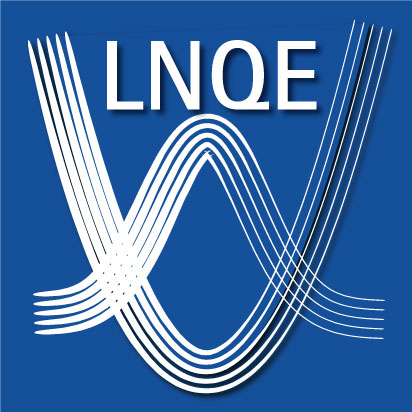Four talks from the institutes of the Laboratory of Nano and Quantum Engineering followed by a get-together
Wednesday, 18.04.2018 at 15:00 - 18:10 in the Walsroder Hörsaal (room 219), building 2501, Callinstraße 7, 30167 Hannover, Germany
Programme
15:00 Talk 1: Prof. Dr. Georg Garnweitner
15:40 Talk 2: Prof. Dr. Fei Ding
16:20 Coffee
16:50 Talk 3: Prof. Dr.-Ing. Bernhard Wicht
17:30 Talk 4: Prof. Dr. Ulrich Giese
18:10 Get-together!
1. Prof. Dr. Georg Garnweitner
Institute for Particle Technology, Technische Universität Braunschweig
Engineering of Metal Oxide Nanoparticles by Chemical Strategies
Metal oxide nanoparticles are highly desired for a variety of applications due to their diverse properties, high chemical and thermal stability, and low toxicity. In this presentation, engineering approaches for the tailored synthesis and processing of metal oxide nanoparticles are presented. In particular, the nonaqueous synthesis has been investigated and modeled with advanced tools of particle technology, allowing further insights into particle formation mechanisms and a prediction of particle properties. Various strategies for tuning the surface chemistry of the nanoparticles are shown to enhance their colloidal stability and achieve nanocomposites with optimized properties. Furthermore, their structuring into hierarchical aggregates that can be tailored in terms of composition and porosity is presented.
2. Prof. Dr. Fei Ding
Institute for Solid State Physics, Atomic and Molecular Structures Section, Leibniz Universität Hannover
Semiconductor based quantum light sources
China has launched the first quantum satellite “Micius” in the last year. The key load in Micius is a nonlinear crystal based quantum light source, which can send two entangled photons separately to two different ground stations. Several revolutionary experiments can be performed with Micius in the next years, which will pave the way towards the satellite based secure quantum communications. Indeed, quantum light sources are playing a crucial role in quantum information sciences. In this talk I will review our recent efforts in developing a semiconductor entangled photon source with the best possible performances.
3. Prof. Dr.-Ing. Bernhard Wicht
Institute of Microelectronic Systems, Mixed-Signal Circuits Group, Leibniz Universität Hannover
Power Management Integrated Circuits
We all benefit from the growing amount of electronics with increasing complexity in many fields. Overall system size and cost require highly integrated power management solutions. This talk gives a general introduction into circuit and system design aspects for DCDC converters and gate drivers. A high level of integration can be achieved by increasing the switching frequency as it scales down passive components. The concept of high-voltage charge and energy storing enables area-efficient gate driver designs with a minimum of external components. This talk also summarizes the ongoing research activities at the mixed-signal circuits (MX) group of the Institute of Microelectronic Systems (IMS) at LUH.
4. Prof. Dr. Ulrich Giese
German Institute of Rubber Technology (DIK) & Institute of Inorganic Chemistry, Leibniz Universität Hannover
1. Nanomaterials in rubber - Tradition and new approaches
2. Elastomer nanocomposites with high barrier properties – Preparation and characterization
In this two-part lecture I will present in the first part the activities of the DIK as an overview and then in the second part focus on elastomer nanocomposites.








